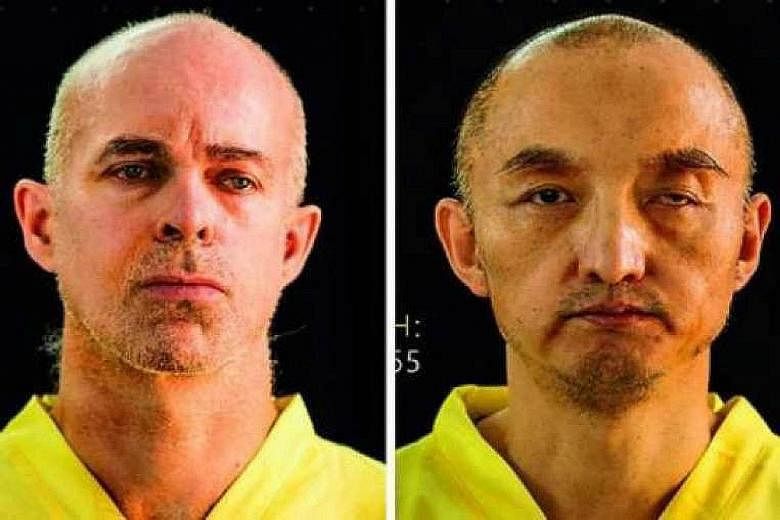President Xi Jinping has denounced the first execution of a Chinese national by the Islamic State in Iraq and Syria (ISIS) as China vowed to bring those responsible to justice.
"China strongly condemns the brutal murder of a Chinese national by Islamic State," Mr Xi said yesterday, according to the official China Central Television.
"Terrorism is the common enemy of humanity. China resolutely opposes terrorism in any form," he added in a statement issued on the sidelines of the Apec Summit in Manila yesterday.
ISIS said on Wednesday that it had killed Mr Fan Jinghui, 50, and a Norwegian, identified as Mr Johan Grimsgaard-Ofstad. It ran photos of the two dead men in its English-language magazine under the banner "Executed". It is unclear why Mr Fan went to the Middle East.
China had worked to secure his release but Mr Fan was still killed in a "cold-blooded way", Foreign Ministry spokesman Hong Lei said in a separate statement, without providing further details.
Beijing will strengthen anti-terrorism cooperation with the international community, he added, saying that the "criminals must be brought to justice".
Premier Li Keqiang also promised to strengthen protection for Chinese living overseas, reported the official Xinhua news agency.
Norwegian Prime Minister Erna Solberg said yesterday that while her government could not confirm the killing, there were "no reasons to doubt it", the Associated Press reported. She described ISIS as a "barbaric group".
Singapore yesterday condemned the killings and urged the international community to "come together to effectively combat the threat posed by ISIS and other terrorist groups", the Ministry of Foreign Affairs said in a statement.
The executions, which came just days after separate attacks that killed at least 129 people in Paris, show the increasing global reach of ISIS' violence.
Experts said that while the killings might further spur Beijing to help seek a global solution to the Syrian civil war that is helping ISIS thrive, it is unlikely to join the international coalition in launching air strikes against the group.
International terrorism expert Rohan Gunaratna of the S. Rajaratnam School of International Studies said that China is likely to stick to its long-held principle of non-interference in another country's affairs.
"It is not keen to be dragged into conflicts because its economic interests come first," he said.
Lanzhou University counter-terrorism expert Yang Shu also pointed out that, unlike countries like the United States that have military bases in the Middle East, China has limited capabilities in the region.
"First, it is unlikely that China will have a military reaction for just one person. And second, its military capabilities also do not permit China to react in that way," he told The Straits Times.
An editorial in the state-run Global Times yesterday distanced Beijing from the chaotic situation.
"China is far away from the Middle East both in geography and politics. The terrorists have no extra resources to target Beijing," it said.
"Under this situation, Chinese citizens must strengthen their awareness of self-protection and avoid entering into the Middle East where terrorism is rampant."
Still, China has repeatedly denounced Islamist militants although its officials have also called on the international community to support its battle against what Beijing says are Islamist separatists in the restive western region of Xinjiang, which has seen a string of violent clashes.
Rights groups, however, say Beijing's discrimination and repression of the religion and language of Xinjiang's Muslim Uighur minority are the reasons for the violence.
It is hard to determine whether Xinjiang's separatists are linked in any way to ISIS, Professor Yang said.
"The situation is a complex one. But we can't rule out this possibility because ISIS is strong in propaganda and recruitment," he added.
"But Beijing is unlikely to change its policies in Xinjiang on the back of this incident. Already, it has in place policies relating to development and strengthening ethnic unity, so it just needs to implement them well now."

